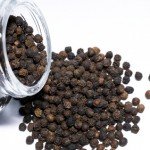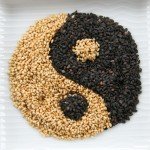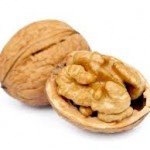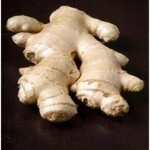Effects of Common Foods and Their Energetic Nature
Compiled by Ellasara Kling
In Western diet, foods are evaluated for proteins, calories, carbohydrates, vitamins, and other nutritional contents. However in TCM diet, we can find not only vitamins and minerals but also the energetic properties of food. The energies of foods refer to their capacity to generate sensations – either hot or cold – in our body. This does not refer to the state of food but its effect on my bodies. For example, tea has a cold energy. This means that when I drink hot tea, it generates cold energy and it is therefore considered a cold beverage. Shortly after we have drunk hot tea, the heat begins to face quickly and it begins to generate cold energy internally, allowing our body to cool off.
Here are the effects of a few common foods
 Black Pepper: It is pungent and hot. It is good for treating cold in the intestines. Adding a little to your soups, stews and other dishes is a good idea in Winter.
Black Pepper: It is pungent and hot. It is good for treating cold in the intestines. Adding a little to your soups, stews and other dishes is a good idea in Winter.
Ginger: Has a warming nature that disperses cold, making it an ideal winter food. Use as an addition to soups, stews, vegetable dishes and as a tea.
Salt: Relates to the Spleen and Kidney Organs/Meridians and is the flavor of Winter as it nourishes the Kidneys.
 Sesame Seeds: These seeds stimulate the Liver and Kidney. The seeds and the oil from the seeds are good for relieving internal dryness – something we may experience indoors in Winter from the various forms of modern heating/air ventilation systems.
Sesame Seeds: These seeds stimulate the Liver and Kidney. The seeds and the oil from the seeds are good for relieving internal dryness – something we may experience indoors in Winter from the various forms of modern heating/air ventilation systems.
Walnuts: Both warm and sweet they majorly effect the Kidney and Lungs and are a good source of energy.
 Ellasara, a practitioner of Wu Ming Qigong, has been studying with Master and Dr. Nan Lu for many years and has participated in special classes through TCM World Foundation and the Tao of Healing in New York City. For comments, questions, consultations, ellasara00@gmail.com
Ellasara, a practitioner of Wu Ming Qigong, has been studying with Master and Dr. Nan Lu for many years and has participated in special classes through TCM World Foundation and the Tao of Healing in New York City. For comments, questions, consultations, ellasara00@gmail.com

